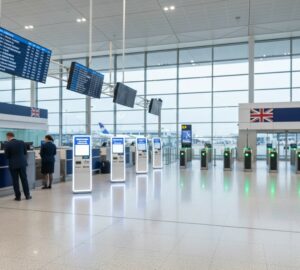Twenty airline members of the World Economic Forum target True Zero Emissions, and have pledged to promote the deployment of cutting-edge technology in the fight against climate change. The carriers will use novel propulsion systems, such as electric and hydrogen power from renewable energy sources, as well as hybrid aircraft.
The 20 airlines are now focusing on short-haul flights, to incorporate innovative propulsion technology into 30 per cent of their fleets beginning in 2030 to cover routes of 500 miles or less.
Beyond that, the airlines want to decarbonise longer-range aircraft “whenever this becomes technologically and economically feasible,” according to a statement.
“The incorporation of these technologies into the global fleet – whether through new aircraft design or retrofitting of conventional aircraft – can help reduce the climate impact of our operations while preserving the enormous economic and social benefits that aviation brings to the world,” the statement said.
Almost every major airline has committed to net-zero goals, with a range of methods in place to reach that aim. While many are focused on sustainable aviation fuels and more efficient conventionally driven aircraft, there is a rising trend toward alternatively powered flying, such as the technology being investigated by the WEF’s effort.
The Target True Zero programme was initiated in July 2021 to get a better understanding of how new propulsion technology may address the climatic impacts of aviation, as well as how to speed the implementation and scaling of such technologies.
In addition to committing to Target True Zero goals, the airlines are urging aerospace manufacturers to prioritise innovation and governments to enact policies that will incentivize operators to adopt these technologies and address the infrastructure issues that will be required to support their use in airports around the world.

















More Stories
Palace Hotel Tokyo Pioneers Eco-Luxury
UK ETA 2026: Game-Changer for Global Tourists
US Flight Chaos: 57 Cancellations & 595 Delays Strand Thousands